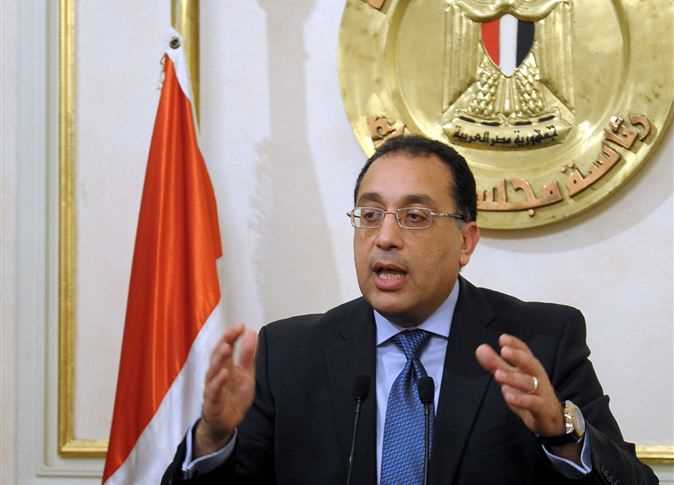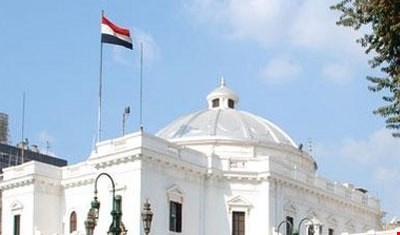“You must bring people back to work immediately… if some people die, it is better than the bankruptcy of the country… if hospitals cannot absorb the numbers of people, they should abandon treatment, and I will not donate. I am not responsible for the income of the people.” The Egyptian billionaire and businessman Hussein Sabbour’s statements about the outbreak of the coronavirus have shocked and provoked millions of Egyptians.
The number of infections in Egypt rose to 1,560 cases with 103 deaths as of Wednesday evening, amid fears Egypt is approaching the peak of the virus with a severe shortage of necessary medical capabilities. It seems that Sabbour, the former president of the Shooting Club and Chairman of the Board of Directors of the Egyptian Businessmen Association, did not only express what he thinks, but rather what a group of businessmen, who fear that their interests will be harmed and their factories and companies disrupted by the extension of the ban, believe.
Sawiris and Sweden
In this vein, billionaire and businessman Naguib Sawiris raised controversy by calling for the curfew not to be extended and for workers to immediately return to work, warning that businessmen will have to cut salaries and lay off workers due to stalled production. Sawiris, who ranked ninth on the Forbes list of Africa’s richest people in 2020, with an estimated wealth of $3 billion, said that “the continued stoppage of production will lead to an increase in unemployment and depression.” Sawiris stressed that the Egyptian government will not be able to compensate everyone for the loss of their livelihoods, which will lead to these people turning to crime or suicide. He added that “there will be economic blood flowing in the veins of the state if workers and employees do not return to their jobs,” warning against bankruptcy in the private sector if businessmen continue to pay salaries without production.
Sawiris based his position on Sweden’s experience in continuing work “normally” without a curfew, which was later denied by Sweden’s Arabic page on Facebook, stressing that the Swedish government did not let life go on normally, and advised the elderly and vulnerable groups to isolate themselves voluntarily. Visits to the homes of the elderly were prevented, and the Ministry of Foreign Affairs recommended that no one travel outside the country until June.
Orascom Construction LTD, owned by the Sawiris family, is working on the project of the new cabinet building inside the new administrative capital, east of Cairo, in addition to other investments.
Al-Arabi’s attitude
The Egyptian businessman Mahmoud al-Arabi took a different position, which won popular praise, after he announced that the workers of al-Arabi group would not be abandoned and their salaries would not be reduced. “Praise be to God, the company started as a family and will continue to do so, and currently there are 35,000 employees and more,” said Mohammed al-Arabi, executive director, in an audio message. He continued: “I think that the crisis will go well, we started to move, thank God, people have awareness, we have made a committee to manage the crisis, and we have made doctors responsible for managing the company, and in every branch of the company there is a committee to inform us about everything.”
He added in his message to the workers: “Never worry about the length of this crisis or make the devil deceive you by telling you that the company will give up or limit itself and abandon you. We will be saved from the crisis.”
Al-Sisi’s bias
After days of heated debate in the Egyptian street about the attitude of businessmen towards the coronavirus crisis, Abdel Fattah al-Sisi expressed his preference that work in the industrial and contracting sectors and the public business sector should continue, without considering the possibility that a high number of people could become infected with the virus. According to leaks, al-Sisi suspended government plans to impose a comprehensive ban similar to that of several neighbouring countries.
Al-Sisi directed that work should continue so that the salaries of workers continue, an attitude that serves the interests of businessmen and protects their investments inside the country. A few days ago, the Egyptian Prime Minister Moustafa Madbouly called for operating projects at full capacity, while taking preventive measures to confront corona, “noting that construction and building are among the most important sectors to which more than 90 industries are linked.”
The number of workers in construction reached nearly 3.9 million in 2019, according to World Bank data. In a significant step, the cabinet approved a partial easing of the curfew so that it started at 8pm instead of 7pm for an additional two weeks until April 23.
Several goals
Several factors stand behind the Egyptian government’s position, the most important of which is not to disrupt the pace of achievement in major projects. The Egyptian government planned to move to the new administrative capital before the end of this year, and these plans have been stalled due to the outbreak of the coronavirus, forcing a number of companies to reduce the number of workers in several locations. Likewise, the length of the ban, and its extension to a complete ban, means obligating the state to disburse a subsidy package worth billions of pounds for informal workers that have been affected by the decision, which the Egyptian government does not want to do, especially since it is already burdened with internal and external debt.
The Ministry of Manpower has allocated an exceptional grant of EGP 500 (about $30) for a period of three months for informal workers, and about 1.5 million people have registered for it so far, in addition to those previously registered (120,000 people).
The Egyptian regime seeks, through the continuation of the pace of work, to reap the fruits of its supportive policies for investors, which included reducing interest rates in banks, delaying the repayment of loan installments for six months, reducing energy prices of factories, and supporting exporters. It seems that the interests of al-Sisi and businessmen have converged to win the battle of coronavirus, perhaps at the expense of the lives of Egyptians.





Recent Comments